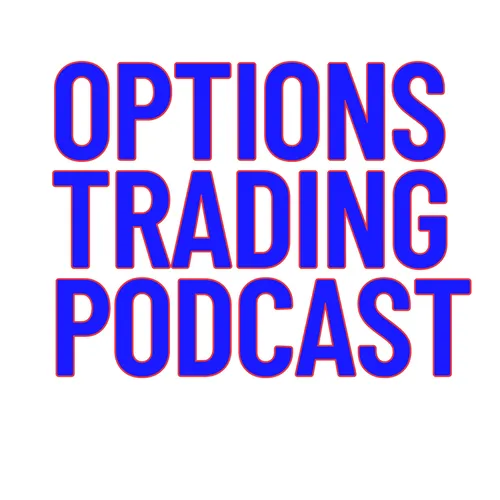Lottery Player vs. The House: Buying vs. Selling Options
- Author
- Sponsored by: OptionGenius.com
- Published
- Wed 27 Aug 2025
- Episode Link
- None
What is the difference between buying an option and selling (writing) an option?
When you hear the word "options," you might feel a mix of fascination and fear. But to truly understand them, you must first grasp a fundamental distinction that changes everything: the difference between buying an option and selling(or writing) one. It's a critical split that defines completely different goals, risks, and mindsets.
In this deep dive, we break down both sides of the trade. We explore the buyer's perspective—the goal of limited risk and unlimited upside, but with the stark reality that over 90% of options bought expire worthless. Then, we flip the script to examine the seller's side—acting as the "insurance company" by collecting premium, embracing high probabilities of profit, and using strategies like covered calls and cash-secured puts.
By the end of this episode, you'll have a clear understanding of which side of the trade is a better fit for your goals and risk tolerance. Are you the lottery player chasing the big win, or the house playing the probabilities?
Don't forget to subscribe and join our community of informed investors.
Key Takeaways
- The fundamental difference is in mindset. Buying an option is like playing the lottery, hoping for a big, improbable win. Selling an option is like running an insurance company, collecting small, consistent premiums based on high probability.
- Time is the enemy of the buyer. Due to time decay (theta), every day that passes erodes the value of an option you've bought, making it a ticking time bomb. For sellers, time decay is their best friend, working in their favor.
- The statistics are against buyers. Over 90% of options that are bought expire completely worthless, making the probability of profit for the buyer statistically low.
- Sellers have high probability, but often limited reward. The goal of a seller is to have the option expire worthless, which happens most of the time. However, their maximum gain is limited to the premium they collected upfront.
- Risk is crucial. A buyer's risk is limited to the premium paid, but a seller's risk can be theoretically unlimited (in the case of naked selling) but is manageable with covered strategies and spreads.
"You'll have a much better idea whether your natural inclination is maybe to play the lottery ticket or run the insurance company."
Timestamped Summary
- 1:37 The two sides of every option trade: a buyer and a seller.
- 2:36 The buyer's mindset: unlimited upside and limited risk.
- 4:33 The stark reality: over 90% of options bought expire worthless.
- 8:17 The seller's mindset: high probability and consistent income.
- 10:00 The crucial distinction between covered and naked selling.
- 13:46 Side-by-side comparison of buying vs. selling options.
Ready to level up your trading knowledge? Share this episode with a friend and discuss your takeaways. Learning together makes you a better trader!
